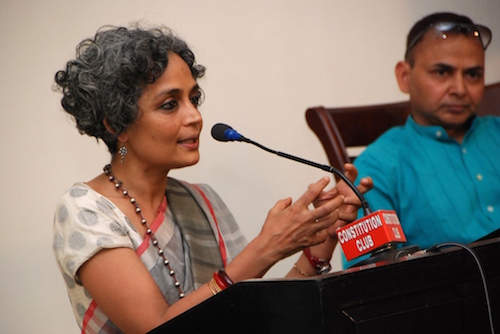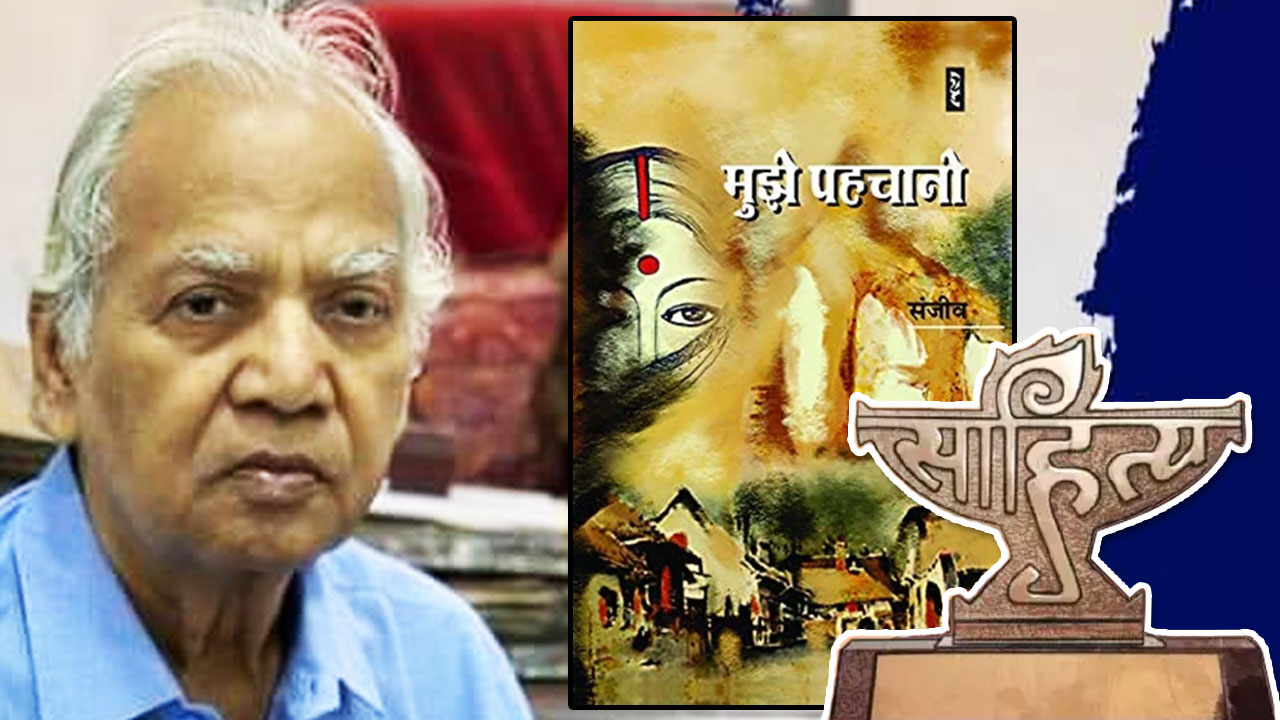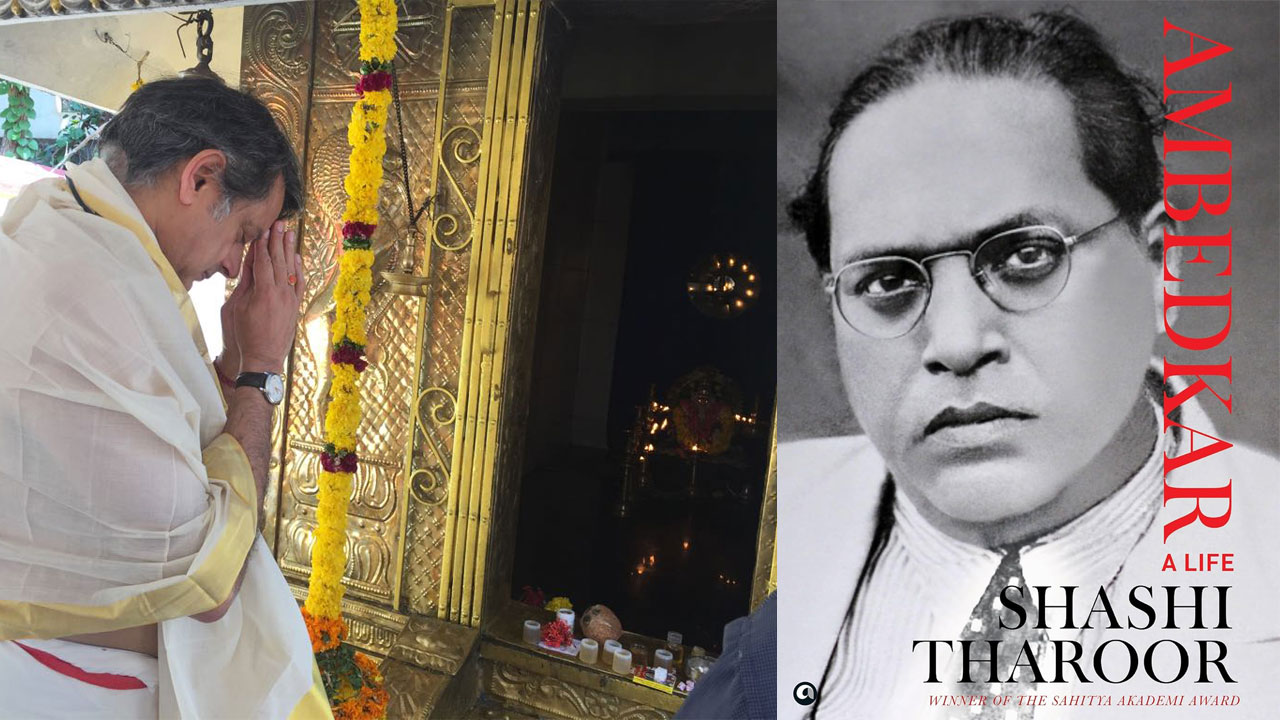Good afternoon everybody. It’s true that I was asked only a day or two ago whether I would come [to this function for the release the FORWARD Press’s Bahujan Literary Annual] and I did happily agree, even though I never agree to be the chief guest for any occasion. But the reason I agreed to do this was because I think, here, we are on to an important idea. That’s why it was something I wanted to do.
[It is] the idea of a literature of people who look at the idea of oppression from a complex point of view. Because the problem I think [is] in how we struggle against a caste-ridden society. A caste-ridden society is a society worse than a society of slavery, worse than apartheid. A society that claims this hierarchy of injustice is institutionalised in its scriptures.  So how do you possibly fight that? And an institution that is so many centuries old where you are asking people to – or people think you are asking them to – deny everything they are in order not to be unjust because the composition of every individual human being is one of unjustness. And that is linked to religion, which is at the core of them.
So how do you possibly fight that? And an institution that is so many centuries old where you are asking people to – or people think you are asking them to – deny everything they are in order not to be unjust because the composition of every individual human being is one of unjustness. And that is linked to religion, which is at the core of them.
So the fight against caste is such a complicated one. Because on the one hand it is a fight against an identity that’s imposed on people arbitrarily, and to fight that you have to accept that identity and then you get locked into it, which is just what they want. And then you divide yourself up and get locked into it, then pit Dalits against the Muslims, OBCs against the Dalits, the Christian against the Adivasi. And inhabiting those identities that have been forced on us, we quarrel with each other and we actually play out exactly what caste was meant for. The most demonically clever system of administration is not where the people at the top control the people at the bottom, but [where] you create a division and make all of them fight with each other.
So how are we to fight this with anger while at the same time always holding in our hearts the idea of justice – not just the anger against injustice but the idea of justice, the idea of love, the idea of beauty, of music, of literature? How do we not become bitter, small people because that is what they want us to become? And so I believe [in] the idea of a literature, of a Bahujan literature, a literature [which looks at] every kind of oppression, and it doesn’t have to be just caste oppression – there are so many different kinds of oppression – but we cannot ever look away from what is the structure of society, which is a society whose engine is based on caste, a society whose politics, whose idea of everything runs on the basis of caste. But that doesn’t mean it doesn’t run on the basis of class, it doesn’t mean it doesn’t run on the basis of this extreme form of capitalism. All of those things have to be taken into account to understand how this society works.
That is why I think we have to look at literature as the means by which we can understand this complexity. That is why literature is such an important thing. It is not about how many copies sell and who won the Booker prize. It’s about what are the ideas that excite a society into changing. That is why I was so happy to accept this [the invitation] because I feel the people in this room have the right idea. That idea is worth a lot in today’s world.
We are facing a situation where you have the BJP and RSS now involved in Ghar Wapsi. This actually began long ago, at the turn of the 20th century. It has nothing to do with religion. It only has to do with demography, politics and numbers. They are now trying to use Babasaheb Ambedkar’s own ideas of reservations as an inducement to those who have converted to Christianity, to Islam to escape the scourge of caste, to reconvert. They are trying to use Ambedkar’s thought against himself. At this time, it is important to understand who are our friends and who are our enemies.
Even radical posturing which serves to deepen the divisions of caste in order to divide people is helping the other side. So we must be thinking very clearly now because we are going to face a huge amount of violence. All Christians, all Muslims, all Dalits, there is a big game being played with the OBC community, where people are posturing as OBCs when they are not – when they are Baniyas – and trying to swing the votes the other way and move into a situation we had before, which is a kind of not Hindu religion supremacy but Hindu supremacy in terms of race, in terms of nationality. So we have to be thinking fast and thinking on our feet and be able to say who are our friends and who are our enemies in a very complicated situation. I know that I’m in a room of people who have thought very deeply and very wisely about this and I’m very proud to be sharing the platform with them. Thank you.
This is the transcript of the inaugural address delivered by Arundhati Roy at a function to mark the sixth anniversary of the FORWARD Press magazine at the Constitution Club, New Delhi, on April 29. Watch the video of this speech on YouTube
Published in the June 2015 issue of the FORWARD Press magazine
For more on Bahujan literature, visit http://www.amazon.in/dp/





